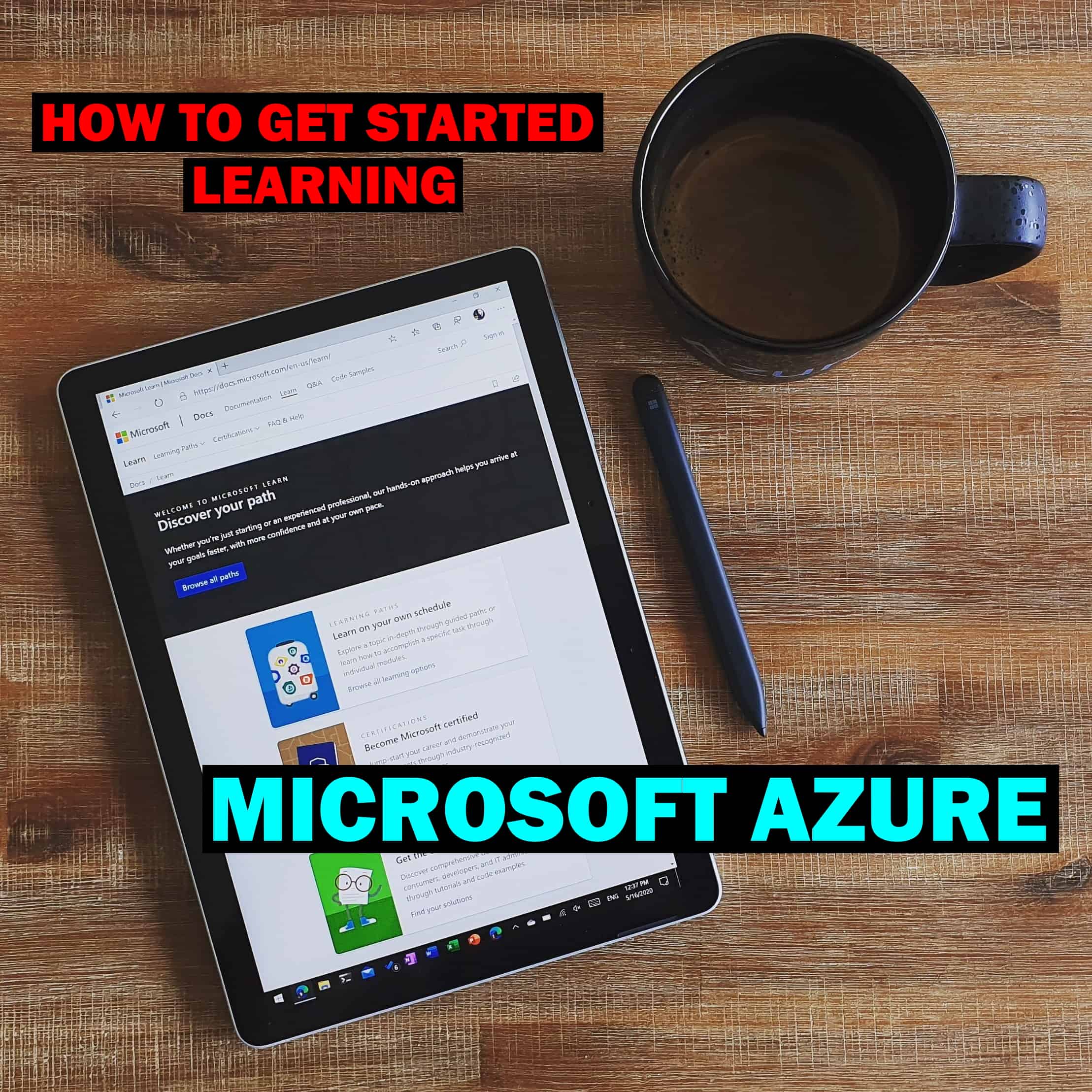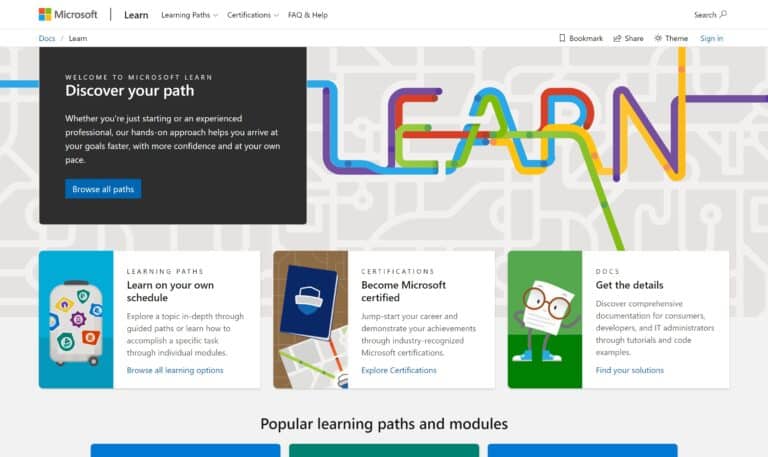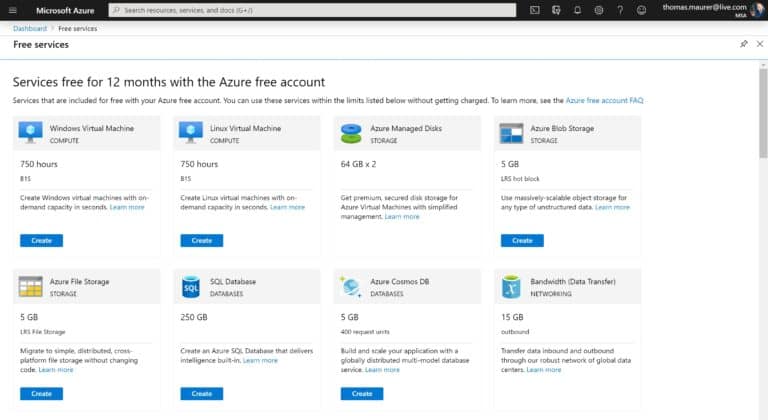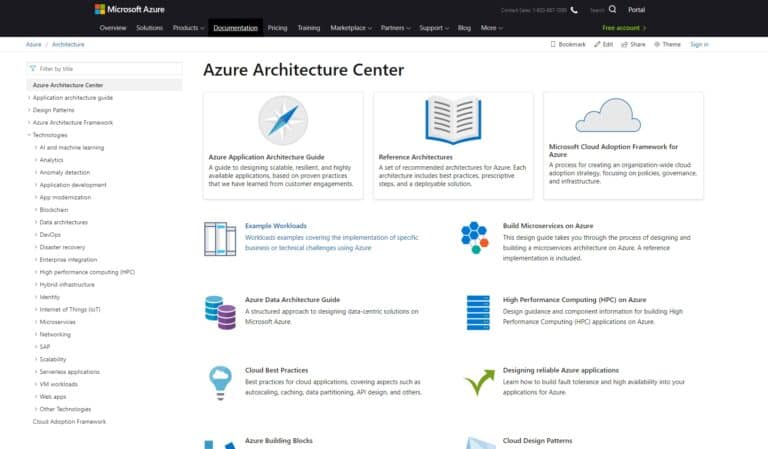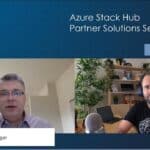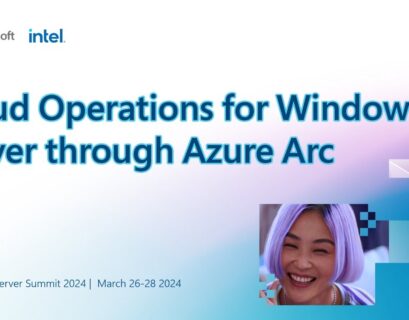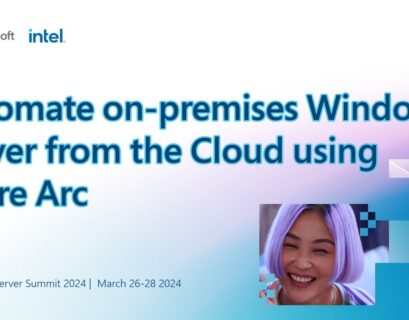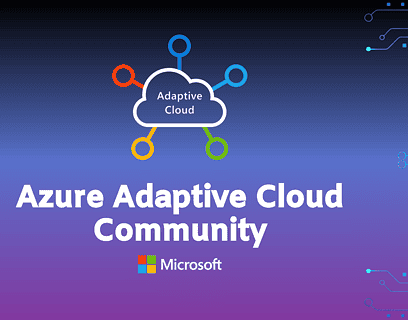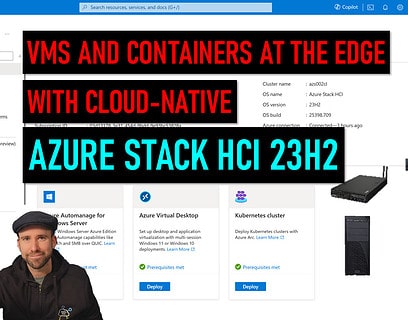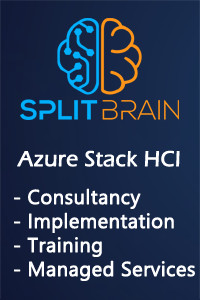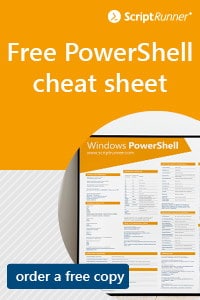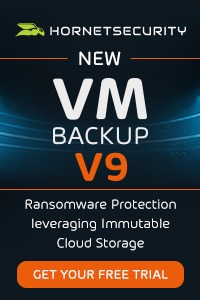In the last couple of months, I often get asked: “Thomas, how should I get started with learning Microsoft Azure and Cloud Computing.” I think the time to learn about Microsoft Azure and Cloud Computing is absolutely right, even if you don’t have much knowledge yet. I got a couple of requests from people on how they can get started with learning Microsoft Azure and cloud computing. Here are some examples:
Im from a networking background so now want to delve into the world of Azure. HOWEVER… I don’t have any experience of any programming language, at all, and I know they we must write scripts for automation and be able to understand them.
So my question is can you please recommend, how should I start to learn ?
or for example:
I am interested in pursuing a career in Microsoft Cloud Azure. I currently have no certifications or cloud experience. Can you give me any advice on how to get started?
To be honest, the answer to these questions isn’t an easy one. It often depends on how much knowledge you already have. People who are already working with IT systems usually already have basics in, for example, networking, storage, scripting or programming languages, and other IT-related topics. But it is absolutely fair that people are switching professions and don’t have these basics or not with all technologies. In my opinion, even these basics are helping a lot; you don’t need to learn all of them before you start learning Microsoft Azure or cloud computing.
What to learn?
For most people, the challenge really is to find out what they should learn and where they should invest their time in. Luckily we have Microsoft certification exams, which are a great summary of resources to learn specific fundamentals or skills for a job role. For people who want to start learning Microsoft Azure and cloud computing, I recommend that they have a look at the AZ-900 Microsoft Azure Fundamentals exam, which is great to prove the knowledge of cloud concepts, Azure services, Azure workloads, security and privacy in Azure, as well as Azure pricing and support. I also want to highlight that it is not just about just passing the exam, but more about finding the right topics to learn. Passing the certification exam, however, gives you that extra benefit when you are applying for a job or a promotion.
Exam AZ-900: Microsoft Azure Fundamentals
Candidates for this exam should have foundational knowledge of cloud services and how those services are provided with Microsoft Azure. The exam is intended for candidates who are just beginning to work with cloud-based solutions and services or are new to Azure.
Azure Fundamentals exam is an opportunity to prove knowledge of cloud concepts, Azure services, Azure workloads, security and privacy in Azure, as well as Azure pricing and support. Candidates should be familiar with the general technology concepts, including concepts of networking, storage, compute, application support, and application development.
Azure Fundamentals can be used to prepare for other Azure role-based or specialty certifications, but it is not a prerequisite for any of them.
If you look at the skills measured in these exams, we see that these are some great fundamentals to learn:
- Describe cloud concepts (15-20%)
- Describe core Azure services (30-35%)
- Describe security, privacy, compliance, and trust (25-30%)
- Describe Azure pricing Service Level Agreements, and Lifecycles (20-25%)
Keep in mind there are also other fundamentals exams for different technology focus areas like:
- MB-901 Microsoft Certified: Dynamics 365 Fundamentals Exam
- PL-900 Microsoft Certified: Power Platform Fundamentals Exam
- MS-900 Microsoft 365 Certified: Fundamentals Exam
- DP-900 Microsoft Certified: Azure Data Fundamentals Exam
- AI-900 Microsoft Certified: Azure AI Fundamentals Exam
So you can also choose a different direction depending on where you want to go. In general, the AZ-900 exam is great since it covers many different cloud computing basics, and it will be very helpful even if you later move in another direction. Also, keep in mind that these fundamentals are not just for technical people. You can also benefit from learning these fundamentals in other job roles.
How to learn Microsoft Azure and Cloud Computing
Now you know what you should learn to get started with Microsoft Azure. The next question is how you can learn it and where you can find the right learning materials. Here are some great places and resources:
Microsoft Learn
Microsoft Learn was introduced at Ignite 2018 as a free learning platform for many different Microsoft technologies, not just Azure. Microsoft Learn provides you with various learning paths depending on your job role or the skills you are looking for. Most of the learning paths give you a hands-on learning opportunity so that you can develop practical skills through interactive training. And it is free! You get instant in-browser access to Microsoft tools and modules; no credit card required.
Microsoft Learn also offers a learning path for the AZ-900 Azure Fundamentals exam, with the following modules:
- Azure Fundamentals part 1: Describe core Azure concepts
- Azure Fundamentals part 2: Describe core Azure services
- Azure Fundamentals part 3: Describe core solutions and management tools on Azure
- Azure Fundamentals part 4: Describe general security and network security features
- Azure Fundamentals part 5: Describe identity, governance, privacy, and compliance features
- Azure Fundamentals part 6: Describe Azure cost management and service level agreements
Microsoft Learn 🎓
Up your game with a module or learning path tailored to today’s IT Pro, developer, and technology masterminds and designed to prepare you for industry-recognized Microsoft certifications.
Become Microsoft Azure Certified
As mentioned before, a great way to learn and verify your skills is to take Microsoft Azure certification exams. A couple of months back, I wrote a series of blog posts on why you should become Microsoft Azure certified, how you prepare for Microsoft Azure exams, and how you take and pass Microsoft certification exams. Taking the new role-based Microsoft certification exams will help you to find the right topics and structure to learn, depending on your current or future job role you are looking for.
Microsoft Certification
Earn certifications that show you are keeping pace with today’s technical roles and requirements.
If you are just getting started with Azure, look at the AZ-900 Microsoft Azure Fundamentals exam. You can also have a look at my experience with the different Azure exam certifications:
- Microsoft Certified Azure Administrator Associate (AZ-10X)
- Microsoft Certified Azure Developer Associate (AZ-203)
- Microsoft Certified Azure Solutions Architect Expert (AZ-30X)
- Microsoft Certified Azure DevOps Engineer Expert (AZ-400)
- Microsoft Certified Azure Security Engineer Associate (AZ-500)
- Azure Fundamentals (AZ-900)
If you are having difficulties to pick the right certification exam, check out my blog post: How to pick the right Azure Exam Certification path.
Microsoft Exam Study Guides
I also wrote a couple of Microsoft certification exam study guides, which might help you as well.
- Exam AZ-900: Microsoft Azure Fundamentals Exam Study Guide
- Exam AZ-104: Microsoft Azure Administrator Exam Study Guide
- Exam AZ-204: Developing Solutions for Microsoft Azure Exam Study Guide
- Exam AZ-220: Microsoft Azure IoT Developer Certification Exam Study Guide
- Exam AZ-303: Azure Architect Technologies Exam Study Guide
- Exam AZ-304: Microsoft Azure Architect Design Certification Exam Study Guide
- Exam AZ-500: Microsoft Azure Security Technologies Certification Exam Study Guide
Azure hands-on experience
There is nothing better than hands-on experience. What many people don’t know, there is a free Azure account offering. Your Azure free account includes a limited quantity of free services for 12 months. Within these limits, you have the flexibility to use free services in various configurations to meet your needs.
To learn more, see the Azure free account FAQ
Create free Azure Account ☁
Create your Azure free account today and get started with 12 months of free services!
More resources to learn Microsoft Azure
There are a couple of more resources I want to point you to, to get started and learn Microsoft Azure and cloud computing.
- Azure Architecture Center – The Azure Architecture Center contains guidance for building end-to-end solutions on Microsoft Azure. You will find reference architectures, best practices, design patterns, scenario guides, and reference implementations.
- Cloud Adoption Framework – The Cloud Adoption Framework is the One Microsoft approach to cloud adoption in Azure, consolidating, and sharing best practices from Microsoft employees, partners, and customers. The framework gives customers a set of tools, guidance, and narratives that help shape technology, business, and people strategies for driving desired business outcomes during their adoption effort. This guidance aligns to the following phases of the cloud adoption lifecycle, like Strategy, Plan, Ready, Migrate, Innovate, Govern, and Manage.
- Azure Migration Center – Get all the tools and resources you need to migrate your apps, data, and infrastructure at your own pace, with confidence.
- Azure Architecture Framework – A successful cloud solution requires to focus on these five pillars of architecture excellence: Cost, DevOps, Resiliency, Scalability, and Security. The Azure Architecture Framework helps you to build on these pillars.
- Application architecture guide – The Azure Application Architecture Guide presents a structured approach for designing applications on Azure that are scalable, resilient, and highly available. It is based on proven practices that we have learned from customer engagements.
- Azure Cloud Design Patterns – The Azure Cloud Design Patterns are useful for building reliable, scalable, secure applications in the cloud. Each pattern describes the problem that the pattern addresses, considerations for applying the pattern, and an example based on Microsoft Azure. Most of the patterns include code samples or snippets that show how to implement the pattern on Azure.
- Azure Reference Architectures – The Reference Architectures are a set of recommended architectures for Azure. Each architecture includes best practices, prescriptive steps, and a deployable solution.
- Architectural decision guides – The architectural decision guides in the Cloud Adoption Framework describe patterns and models that help when creating cloud governance design guidance.
- Cloud Operating model – Establish an operating model for the cloud.
- Get started guide for Azure developers – The get started guide helps developers get started with Azure and tools.
- Azure Quickstart Templates – Deploy Azure resources through the Azure Resource Manager with community contributed templates to get more done. Deploy, learn, fork, and contribute back.
- Code samples – Get started with Microsoft developer tools and technologies. Explore our samples and discover the things you can build.
- Azure Hybrid – Learn about Azure Hybrid Cloud with features and services like Azure Stack, Azure Arc, and many more.
- Azure for AWS Professionals – This article helps Amazon Web Services (AWS) experts understand the basics of Microsoft Azure accounts, platform, and services. It also covers key similarities and differences between the AWS and Azure platforms.
- Azure Security – Learn about Azure and security
- Azure compliance – Get an overview of compliance in Microsoft Azure, with more than 90 compliance offerings
- Azure privacy – Learn more about Azure data privacy and protection.
- Service Level Agreements (SLA) – Read the SLAs to learn about our uptime guarantees and downtime credit policies.
- Azure pricing – learn about how Azure pricing works and how you can save costs and get the best value at every stage of your cloud journey.
- TCO Calculator – Estimate the cost savings you can realize by migrating your workloads to Azure.
- Azure Support Plans – Explore the range of Azure support options and choose the plan that best fits, whether you’re a developer just starting your cloud journey or a large organization deploying business-critical, strategic applications.
I hope these resources give you a great summary of how you can start learning Microsoft Azure and cloud computing. If you have any questions, or you feel that some resources are missing, let me know in the comments. Also, subscribe to my blog to learn about the latest updates.
Tags: Azure, Azure Fundamentals, Career, Certification, Cloud Computing, Exam, Fundamentals, Get started, Getting started, Learn, Learning, Microsoft, Microsoft Azure, Microsoft Learn, Skills, Training Last modified: December 29, 2020
